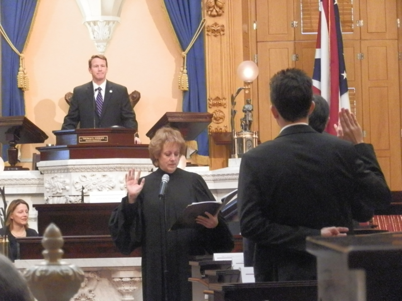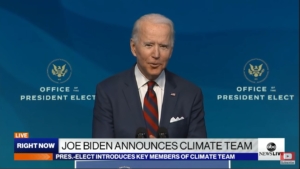Faithless Electors = Hopeless Electors
Here’s What You Need To Know
With the official vote of the electoral college coming up next Monday, the bargaining phase of grief has begun for those who are still reeling from Donald Trump’s victory in the presidential election. Petitions and articles are circulating all over the internet calling on electors who are technically pledged to vote for Trump to become “faithless electors” and vote for someone else. Unfortunately for those hoping to somehow change the outcome of the election this way, the depression stage should be coming soon when they realize the steps in the electoral college process virtually ensure faithless electors will not be able to change who will be sworn in as President on Inauguration Day.
The key points of this process include:
- This coming Monday, the electors will gather to cast their votes. In twenty-nine states and the District of Columbia, they must vote as pledged or face penalties under laws aimed at preventing faithless electors. Two additional states have laws that, instead of penalizing the elector, automatically void the vote of a faithless elector.
- On January 6th, 2017, Vice President Biden will open a joint session of Congress and two sets of tellers will open the sealed vote certificates from the states and read the results aloud to be entered into the congressional record. As each vote is announced, the Vice President will ask if there are any objections. All objections must be made in writing and must be signed by no fewer than one member of the House of Representatives and one member of the Senate.
- If there are objections, the House and Senate meet separately to discuss them with a two-hour limit on these meetings. Each member has a maximum speaking time of five-minutes, and when the joint-session resumes, the conclusions of the meetings are announced. In order for the challenged electoral college vote to be rejected, both the House and Senate must agree.
- The final step, if the faithless electors were somehow successful in blocking Trump from reaching 270 votes in the electoral college and withstood challenges to faithless electors in Congress, would be for a vote of the House of Representatives with each state delegation having one vote. Considering the House is controlled by the GOP, all of whom were just elected by the same voters who elected Trump, they would end up simply electing him there. Meaning, even if these faithless electors somehow miraculously get what they want, it all amounts to little more than a symbolic parlor trick that still leave Donald Trump becoming President on January 20th.
In 1836, after learning that President-elect Martin Van Buren’s vice-presidential running mate, Richard Johnson, was ‘living in sin’ with an African-American woman, faithless electors attempted to alter the election results during the vote of the electoral college. Once Johnson failed to achieve the majority, his election went to the U.S. Senate, who promptly voted him into the office he had already won. That is the closest faithless electors have come to achieving anything in American history. The bottom line is, faithless electors have never been successful and they aren’t starting now.
Subscribe to Receive Insights
"*" indicates required fields
News You Can Use
TRUMPING IRAN
There is no doubt that the Trump administration intends to radically alter the foreign policy of the last eight years regarding Iran, but a few recent policy announcements give insight into just how he intends to do so. First, there have been reports that the new Administration may be planning to release unclassified documents kept from the public by the Obama Administration that reveal concessions to Iran and list entities involved in the nation’s ransom mechanics. Releasing these documents has already received bipartisan support from Congressional Democrats who opposed the Iran Deal. Second, the Obama administration has also been slowly moving the guidelines published by the Treasury Department regarding how U.S. businesses can safely do business with Iran further and further beyond what Congress has actually allowed. The Trump administration appears poised to move those guidelines back to what is actually permitted within the current sanctions against the Islamic Republic. Expect these to be just the first of many changes in how the Trump foreign policy team deals with Iran.
INTEREST RATES’ STUDENT LOAN STRUGGLE
The Federal Reserve recently raised interest rates for just the second time since the 2008 financial crisis, and many experts expect even more rate hikes next year. One important outcome of this action is how it could balloon student loan costs, since student loan rates are directly determined by yields on the 10-year Treasury note. There are, however, new student loan repayment programs, like income-driven repayment, that no longer tether student loans to interest rates, but do potentially leave borrowers getting a lesser amount of their loan forgiven at the end of their repayment period. If interest rates rise high enough, taxpayers could be on the hook for hundreds of thousands of dollars in loan forgiveness per student. This may seem like a good deal for borrowers, until you realize that the government treats loan forgiveness as taxable income. So the truth is, whether tethered directly to interest rates or not, rising interest rates could have a serious impact on student loan costs, both for taxpayers and borrowers.
FREEDOM CAUCUS’ WISH LIST
One question as we enter the Trump era is whether the House Freedom Caucus will shift toward a more productive role in Washington. The Caucus’ recently released list of nearly 200 rules and regulations they believe President-elect Trump should target within his first hundred days in office suggests they might. The list includes items from all corners of the government, ranging from items with broad Republican support like eliminating the Obama administration’s new overtime rule to more outlier suggestions like reinstating the Defense Department’s ban on women serving in combat. It remains to be seen how the Trump administration deals with the sometime unruly House Freedom Caucus, but caucus-member Rep. Raul Labrador has already suggested the group could try to put pressure on the new Administration.
WARREN’S FRIENDLY FIRE
Elizabeth Warren, as much as any modern politician, enjoys finding a villain to score political points by attacking. But, she recently failed to do her homework before going after hedge fund manager Whitney Tilson. Two weeks ago, Tilson, who runs Kase Capital, admitted during an interview in taking some “glee” in how he felt Donald Trump “conned” the American electorate by attacking Wall Street on the campaign trail, only to invite them into the new Administration. Not surprisingly, Sen. Elizabeth Warren quickly went on the attack against him. Unfortunately for Warren’s narrative, tagging Tilson as a “hedge fund billionaire” who is “thrilled by Donald Trump’s economic team of Wall Street insiders,” Tilson is actually a die-hard Democrat who publicly fought Trump’s campaign and supported Hillary Clinton. Furthermore, not only did Tilson help found the Teach for America program, but he is also one of the few Wall Street executives who contributed to Warren, as she sought new regulations, praised moves to strengthen the Consumer Financial Protection Bureau, and even claimed to be “a fan of Dodd-Frank.” The failure on Warren’s team to do their homework is a quintessential example of the importance of researching your target before you go on the attack.
MAKE THE TRADE DEFICIT GREAT AGAIN?
Mark Perry, professor of economics and finance at the University of Michigan and an American Enterprise Institute scholar, argues that concerns over the U.S. trade deficit may be overblown. Rather than viewing deficits as a threat, he argues it may make more sense to see them as “job-generating foreign investment surpluses.” Perry points out that there is technically no overall deficit (or surplus) for international transactions. While the U.S. cash flows for goods and services have been in a deficit for many years, the cash flows for financial assets have simultaneously been in surplus. Perry’s analysis concludes that trade deficits are accompanied by healthy foreign investments that offset any negative economic impact of the deficit, and actually help lead to job-creation and economic growth.
“FAKE NEWS” CAN’T BE SOLVED WITH AN APP
As the war against “fake news” continues, part of the blame for the alleged scourge has fallen on tech companies like Google and Facebook for supposedly ranking these news items high in their search algorithms. The American Enterprise Institute’s Ariel Rabkin argues that “fake news” is not a tech problem and cannot be solved by simply rewriting code; it is a societal problem that can only be resolved through social remedies. The issue of inaccurate or poorly sourced dubious claims is not a new problem. Rumor-mongering and conspiracy theories have been around forever; technology has merely made the problem more visible. The primary challenge of “fake news,” then and now, is humans creating and disseminating false information. Despite the human nature of this problem, social media sites, like Facebook, are already looking for ways of flagging “fake news” for readers so they can be informed. Of course, this not only fails to address the more human core of the problem, but in fact merely compounds it by raising the inevitable question of who should be allowed to determine the “fakeness” of news?



